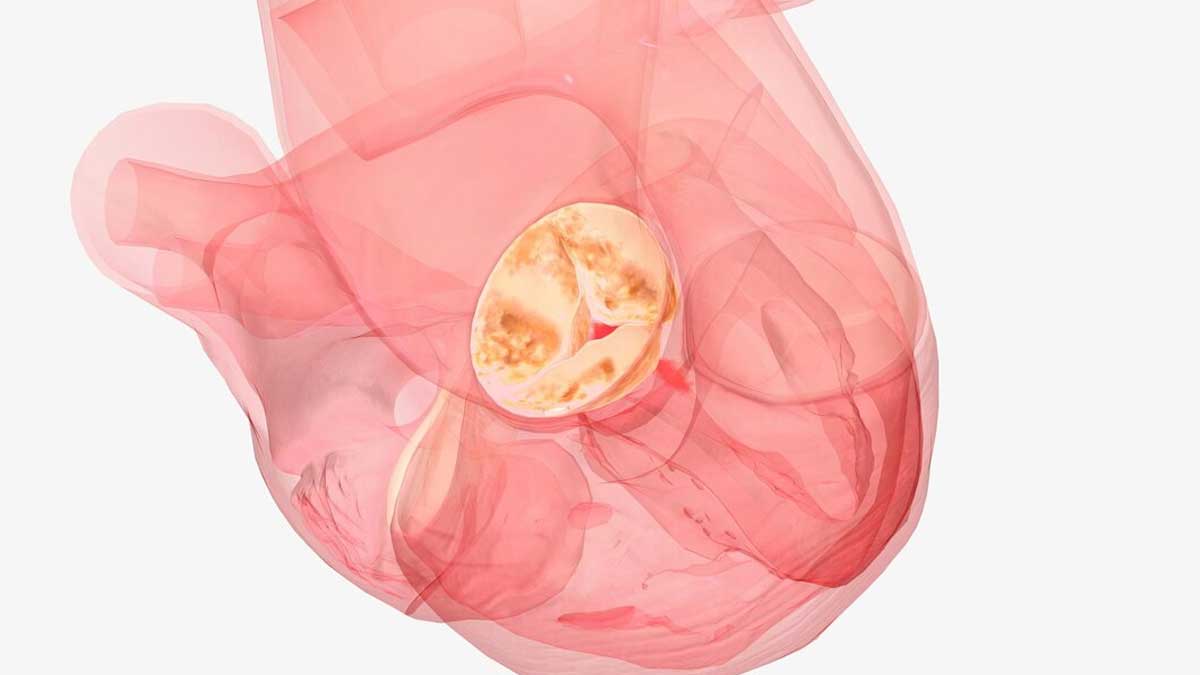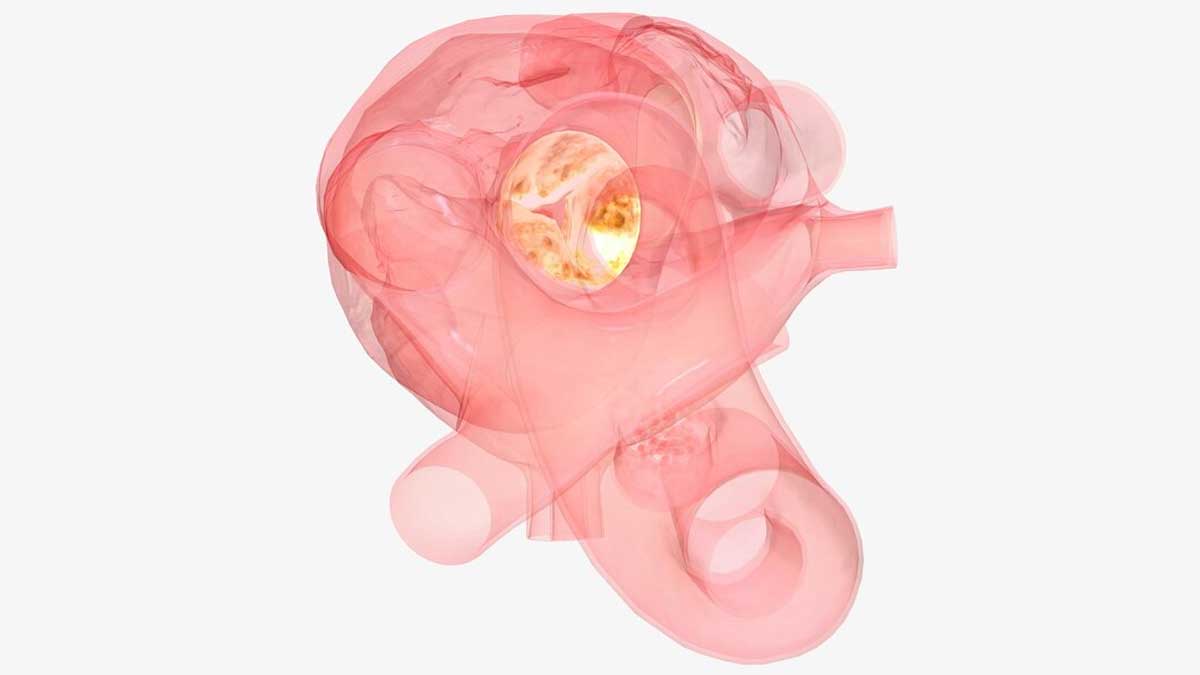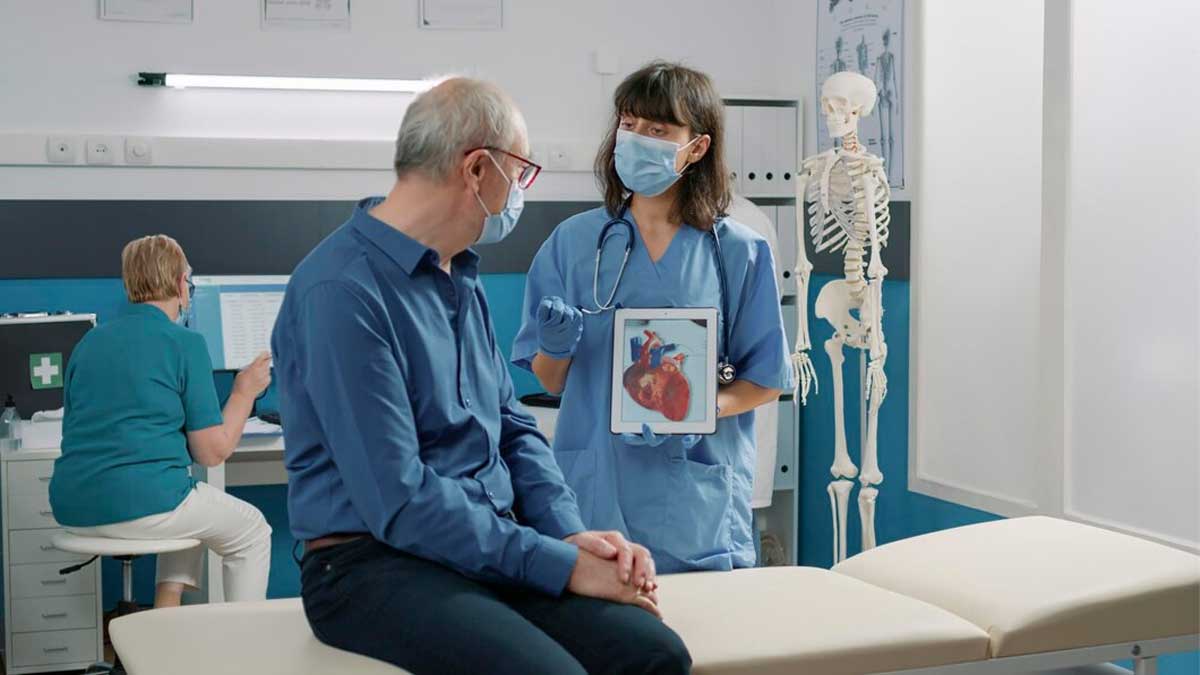
Have you ever wondered what would happen if there was a leakage from some part of your heart? This may prevent your heart from supplying blood to the rest of your body, resulting in symptoms, such as chest pain and shortness of breath. This condition in which the aortic valve of the heart fails to close tightly is known as aortic regurgitation. We spoke to our expert Dr Cr Rajesh Deshamukh, Senior CTVS Surgeon, Kamineni Hospitals, LB Nagar, Hyderabad, who explained this condition in detail and listed its symptoms, causes, complications, and management strategies.
Table of Content:-

“Aortic regurgitation, commonly referred to as a leaky aortic valve, is a heart condition where the aortic valve fails to close tightly. This results in the backward flow of blood from the aorta (the main artery) into the left ventricle of the heart. As a result, your heart works harder to pump blood to your body”, informed Dr Deshamukh.
According to the BMJ Publishing Group, the frequency of this condition was observed to be 4.9%, with 0.5% experiencing regurgitation of severe or higher intensity.
Symptoms Of Aortic Regurgitation

The spectrum of symptoms collectively signal potential cardiovascular issues. Dr Deshamukh listed some of it as follows:
- Heart palpitations marked by irregular heartbeats or a sense of rapid heart rate
- Shortness of breath, particularly noticeable during physical activity or while lying down, may accompany the condition
- Chest pain or discomfort typically centralised but potentially radiating to the neck, back, or arm, adds to the clinical picture
- Fatigue, especially pronounced after exercise, and episodes of dizziness or fainting, attributable to diminished blood flow to the brain
These symptoms further underscore the importance of recognising and addressing aortic regurgitation. They collectively highlight the impact on the cardiovascular system and underscore the need for timely medical attention and intervention.
Also Read: Impact Of Stress On Heart Health: Expert Explains How Stress Affects Your Heart
Causes Of Aortic Regurgitation
Aortic regurgitation stems from various causes, each contributing to the dysfunction of the aortic valve.
- Valve degeneration, a natural consequence of age-related wear and tear is a common factor
- Congenital heart defects, present at birth, can impact the aortic valve's structure, setting the stage for regurgitation
- Infection, as seen in endocarditis, poses another risk, while complications from untreated strep throat, such as rheumatic fever, can lead to valve damage
- Additionally, aortic regurgitation may arise from the weakening or bulging of the aorta, known as an aortic aneurysm, which distorts the valve
“This amalgamation of causes highlights the diverse origins of aortic regurgitation and emphasises the importance of addressing these underlying factors for comprehensive management”, added Dr Deshamukh.
Risk Factors For Aortic Regurgitation

Dr Deshamukh explained the risk factors for aortic regurgitation as follows:
- Risk factors encompass age-related valve degeneration, with increased susceptibility as individuals age
- Men are more prone to this condition, and those with congenital heart anomalies face elevated risks
- A history of rheumatic fever or prior bacterial heart infections, such as endocarditis, further amplifies the likelihood of aortic regurgitation
These factors collectively highlight the diverse demographic and health-related considerations that influence the development of this cardiovascular condition.
Also Read: From Dizziness To Chronic Cough: Expert Lists Signs Of Unhealthy Heart You Should Watch Out For
Complications Of Aortic Regurgitation
This Aortic regurgitation can result in complications, such as:
- Heart failure
- Arrhythmias
- Aortic aneurysm
- Stroke
- Cardiomegaly (enlargement of heart chambers)
Diagnosis Of Aortic Regurgitation

“Diagnosis involves a physical examination to detect heart murmurs and various imaging techniques like echocardiograms, electrocardiograms, MRI, or CT scans”, informed Dr Deshamukh. These diagnostic tools are essential for timely intervention and tailored management of aortic regurgitation and its associated complications.
Management Of Aortic Regurgitation
Aortic regurgitation is managed through medications to alleviate symptoms and impede progression, and surgical options for repair or replacement of the valve. Watchful waiting and lifestyle changes, including blood pressure management and a heart-healthy diet, are common strategies.
Prevention For Aortic Regurgitation
Dr Deshamukh said, “Antibiotics before procedures help prevent infections. Prevention involves regular check-ups, a healthy lifestyle, prompt infection treatment, and blood pressure control. This holistic approach ensures a comprehensive response to aortic regurgitation, addressing symptoms and underlying causes.”
[Disclaimer: This article contains information provided by a registered healthcare professional and is for informational purposes only. Hence, we advise you to consult your expert if you notice any symptoms to avoid complications.]
Also watch this video
How we keep this article up to date:
We work with experts and keep a close eye on the latest in health and wellness. Whenever there is a new research or helpful information, we update our articles with accurate and useful advice.
Current Version